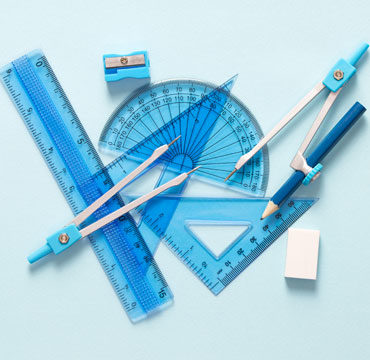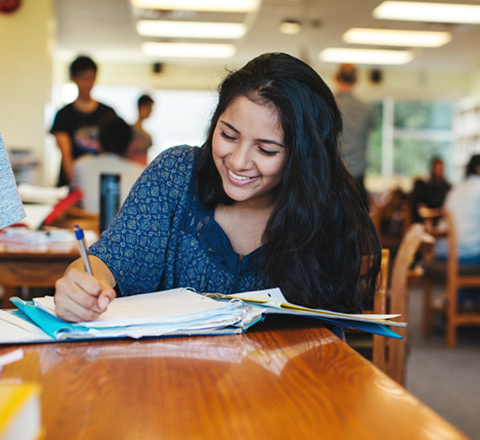Geometry Tutoring: A Tailored Strategy to Grasping Concepts and Improving Grades
Geometry tutoring gives an one-of-a-kind opportunity for trainees to enhance their understanding of mathematical concepts. With an emphasis on individualized direction, tutors can address certain challenges and adjust to individual learning designs. This targeted strategy not only makes clear complicated topics yet likewise promotes self-confidence in pupils. As learners browse the subtleties of geometric concepts, they might find unexpected advantages that extend beyond the class. What might these benefits be?
Comprehending the Value of Personalized Geometry Tutoring
Although many pupils fight with geometry as a result of its abstract concepts, customized tutoring can significantly improve their understanding and self-confidence. This personalized approach enables tutors to tailor lessons to fulfill each pupil's distinct learning style, pace, and particular obstacles (Geometry Tutor). By concentrating on areas where students may have problem, tutors can supply targeted descriptions and practice, ensuring that fundamental principles are solidified before progressing to extra intricate subjects
Personalized tutoring fosters a supportive environment where students feel comfortable asking concerns and revealing complication. This inspiration can greatly minimize stress and anxiety, enabling students to involve more totally with the material. Because of this, trainees commonly experience a boost in motivation and self-efficacy. Additionally, personalized tutoring can aid connect the gap between classroom guideline and personal understanding, eventually resulting in improved efficiency in geometry. On the whole, the relevance of tailored geometry tutoring depends on its ability to cater to private demands and promote scholastic development.
Key Concepts Covered in Geometry Tutoring Procedure
Geometry tutoring sessions incorporate a selection of crucial concepts that create the foundation of the subject. Trick topics include the research of points, lines, angles, and numerous geometric shapes, such as quadrilaterals, circles, and triangulars. Tutors concentrate on buildings and theories connected to these forms, including harmony, resemblance, and the Pythagorean theorem.
An additional vital location of emphasis is the understanding of dimension, including volume, boundary, and location calculations. Furthermore, tutors present pupils to work with geometry, where they find out to assess the partnerships in between geometric figures and algebraic equations.
Changes such as translations, turnings, and representations are also considerable topics, as they aid students visualize changes in form and position. Finally, tutoring sessions often cover the concepts of geometric evidence, cultivating sensible thinking and important reasoning skills essential for mastering the topic. Jointly, these ideas offer a comprehensive structure for comprehending geometry.
Benefits of One-on-One Tutoring for Geometry Mastery
While lots of students gain from group discovering settings, one-on-one tutoring uses tailored instruction that greatly boosts geometry mastery. This individualized method enables tutors to address each student's unique discovering design and rate, ensuring that ideas are completely comprehended. Individualized interest makes it possible for students to ask inquiries easily, fostering a deeper understanding of complicated geometric principles.
One-on-one tutoring offers immediate comments, enabling trainees to deal with mistakes and solidify their understanding in real-time. This instantaneous information can significantly reduce stress and stress and anxiety often linked with challenging subjects like geometry.
Furthermore, the concentrated setting lessens distractions, making it possible for trainees to concentrate completely on their learning goals. Because of this, individually tutoring not just boosts scholastic efficiency but likewise assists construct confidence in mathematical abilities. Ultimately, this tailored support can cause improved grades and a more extensive recognition of geometry as a subject.
Exactly how to Choose the Right Geometry Tutor
Just how can a pupil choose the most appropriate geometry tutor? It is essential to evaluate the tutor's certifications and experience in teaching geometry. A strong history in maths education and learning or a relevant area can show efficiency. Next off, pupils must take into consideration the tutor's mentor style and whether it aligns with their knowing choices. Some trainees flourish with an organized technique, while others might gain from a more versatile, interesting technique.
Additionally, assessing evaluations or endorsements from previous trainees can give insights right into the tutor's efficiency and connection. Accessibility and location are additionally substantial elements; discovering a tutor that can suit the pupil's timetable enhances the likelihood of regular sessions. Finally, a trial session can aid identify compatibility. This preliminary conference enables students to gauge the tutor's communication skills and ability to discuss complicated concepts plainly, eventually bring about a much more informed decision.
Approaches for Efficient Geometry Knowing
Reliable geometry knowing often integrates aesthetic learning methods, which assist pupils comprehend complicated concepts with diagrams and versions. Additionally, constant practice and application of geometric concepts strengthen understanding and retention. By integrating these strategies, students can enhance their abilities and self-confidence in geometry.

Aesthetic Discovering Techniques
Aesthetic learning strategies act as powerful devices for trainees passing through the intricate world of geometry. These methods usually involve the use of layouts, designs, and aesthetic aids that allow students to comprehend complicated concepts extra with ease. Geometric forms can be illustrated through sketches or digital representations, allowing students to picture properties and connections. Additionally, color-coding various elements within a layout can boost comprehension and retention. Mind mapping is one more efficient technique, aiding trainees organize their ideas and see links between various geometric concepts. By integrating aesthetic learning techniques, pupils can cultivate a deeper understanding of geometry, making abstract principles more substantial and simpler to manipulate. Ultimately, these strategies facilitate an informative post even more engaging and efficient knowing experience.
Technique and Application
A solid understanding of geometry needs constant method and application of ideas learned. Participating in regular problem-solving exercises boosts students' capability to picture and adjust geometric numbers. Tutors advise integrating a selection of troubles, from standard shapes to extra complicated evidence, to why not try here solidify understanding. In addition, trainees should apply geometry principles to real-world situations, such as style or engineering, to see their significance and utility. Utilizing online sources, such as interactive geometry software program, can additionally enrich the discovering experience. Regular feedback from tutors can determine locations that need renovation, enabling targeted technique. Eventually, an organized approach integrating varied techniques and regular application fosters mastery and enhances overall academic performance in geometry.
Real-Life Applications of Geometry Abilities
Geometry skills play a vital role in numerous real-life applications, specifically in fields such as style and design, where spatial thinking is essential for producing useful frameworks. Furthermore, engineering and modern technology greatly count on geometric concepts to fix intricate troubles and innovate brand-new remedies - Geometry Help. Understanding these applications can boost recognition for geometry past the class
Style and Layout

Engineering and Technology

Often Asked Concerns
Exactly How Much Does Geometry Tutoring Normally Price?
Geometry tutoring typically costs between $25 and $80 per hour, relying on elements such as the tutor's experience, location, and whether the sessions are conducted in-person or on the internet, influencing overall rates and accessibility for pupils. - Geometry Tutor
What Qualifications Should I Try to find in a Tutor?
One need to look for a tutor with a strong math background, relevant training experience, and experience with various learning designs. In addition, accreditations or degrees in education or mathematics can boost their integrity and effectiveness in tutoring.
How Much Time Do Tutoring Sessions Normally Last?
Tutoring sessions normally last in between one to two hours, permitting sufficient time for in-depth explanation and method. The period may vary based upon the pupil's demands, subject complexity, and tutor's mentor style.
Can Tutoring Accommodate Different Discovering Styles?
Yes, tutoring can fit different understanding styles by using various teaching methods tailored to specific demands. This customized approach improves understanding, retention, and application of principles, eventually cultivating a more efficient understanding environment for every student.
What Materials Are Needed for Geometry Tutoring Sessions?
Vital materials for geometry tutoring sessions typically consist of chart paper, rulers, protractors, handouts, calculators, and books. Additionally, visual aids like representations or designs can enhance understanding, satisfying various discovering styles effectively.
Geometry tutoring offers an unique chance for trainees to enhance their understanding of mathematical concepts. Lots of pupils struggle with geometry due to its abstract concepts, personalized tutoring can substantially boost their understanding and self-confidence. While lots of students benefit from group understanding atmospheres, one-on-one tutoring uses tailored direction that significantly boosts geometry mastery. How can a student select the most suitable geometry tutor? Effective geometry learning commonly includes aesthetic learning methods, which aid students grasp complex ideas with representations and models.